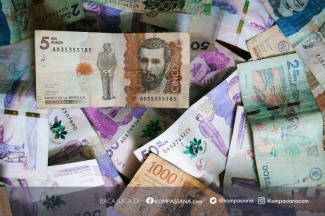Abstract — Lebanon stands to benefit significantly from extracting and monetizing its potential natural gas reserves. However, significant uncertainty has resulted in stakeholders adopting a wait-and-see approach in decision-making and investment in the hydrocarbon sector. This paper aims to address this uncertainty by providing a structured framework to determine the conditions that make various export options under consideration feasible and attractive. Our analysis particularly focuses on the LNG option that Lebanon could use to ship its gas to market. This option is broad and the alternatives range from building an LNG liquefaction plant in Lebanon, deploying floating LNG vessel, leasing an existing underutilized LNG plant, to a brownfield expansion of an existing LNG facility in Egypt.
An Acknowledgement
We express our gratitude to various faculty members and fellows at the Harvard Kennedy School of Government who have provided us with helpful and critical feedback to our Policy Analysis Exercise (PAE), the capstone project for Master in Public Policy (MPP) students, on which this paper is based on. Particularly, our gratitude goes to Professor Henry Lee, our faculty advisor, Professor Philip Hanser, our PAE seminar leader, Leonardo Maugeri, Professor Meghan O’Sullivan, and Professor Francisco Monaldi.
We would also like to express our gratitude to our PAE client, the Lebanese Oil & Gas Initiative, for their trust, enthusiasm, and continued support. Our gratitude goes also to our 16 interviewees whom we met in our trip to Lebanon, for their time and willingness to answer some of our most pressing questions, and the invaluable insight that they provided in helping us understand Lebanon’s complex political and geopolitical landscape as well as navigating its nascent oil and gas sector. They are: Jeremy Arbid, Najla Farid Nakhle, Diana Kaissy, Laury Haytayan, Professor Carmen Geha, Matt Nash, Mona Sukkarieh, Husam Mohamed Beides, Walid Nasr, Nasser Hoteit, Joseph Maalouf, Marwan Fouad Abdallah, Vida Hamd, Alain Bifani, Sara Abou Atmeh, and Professor Raymond Ghajar.
We would like to thank various centers within the Harvard Kennedy School of Government, without whom this research would not have been possible: the Middle East Initiative, the Environment and Natural Resources Program, and Mossavar-Rahmani Center for Business and Government.
Finally, on a more personal note, this research will not have materialized without the support of Indonesia Endowment Fund for Education (Lembaga Pengelola Dana Pendidikan, or LPDP), who has generously funded the study of one of the authors, Johannes Ardiant, at the Harvard Kennedy School of Government.
Follow Instagram @kompasianacom juga Tiktok @kompasiana biar nggak ketinggalan event seru komunitas dan tips dapat cuan dari Kompasiana. Baca juga cerita inspiratif langsung dari smartphone kamu dengan bergabung di WhatsApp Channel Kompasiana di SINI



